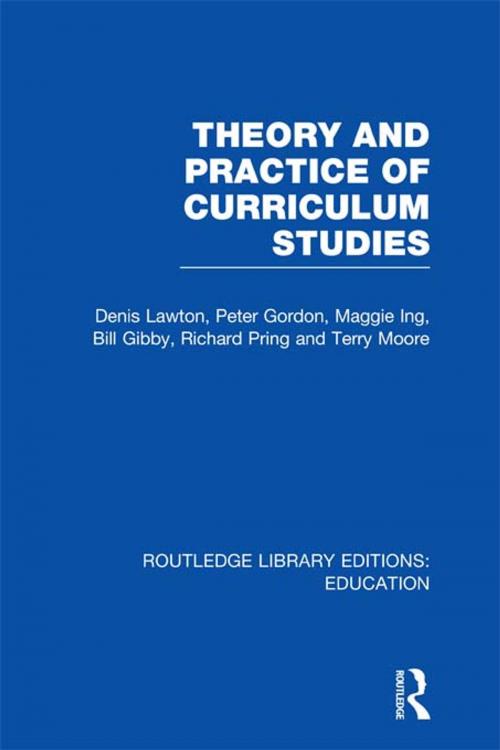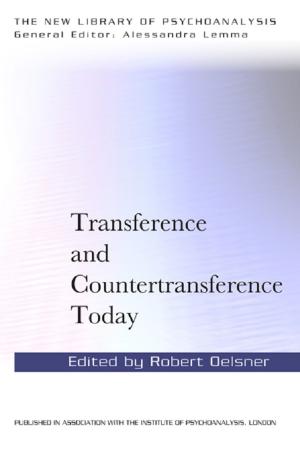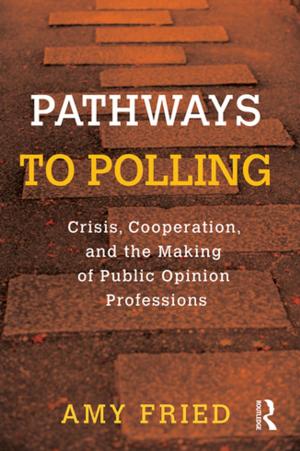Theory and Practice of Curriculum Studies
Nonfiction, Reference & Language, Education & Teaching, Educational Theory, Curricula| Author: | Denis Lawton | ISBN: | 9781136710018 |
| Publisher: | Taylor and Francis | Publication: | May 16, 2012 |
| Imprint: | Routledge | Language: | English |
| Author: | Denis Lawton |
| ISBN: | 9781136710018 |
| Publisher: | Taylor and Francis |
| Publication: | May 16, 2012 |
| Imprint: | Routledge |
| Language: | English |
This book deals with curriculum issues and problems, and one of its aims is to help practising teachers to clarify their own theory and practice in relation to the curriculum. The contributors look at three popular theories or sets of assumptions held by teachers: the child-centred view of education; the subject-centred or knowledge-centred view; and the society-centred view. Each of these views is incomplete on its own, but each has something to contribute in planning a curriculum as a whole, and the authors emphasize that a comprehensive theory of curriculum planning would take into account the individual nature of the pupil and also recognize the social value of education. This kind of comprehensive curriculum planning has been described as the situation-centred curriculum, based on the idea that schools should be concerned with preparing the young for the world as it will be when they leave school. One of the purposes of education is to develop a child’s autonomy; he or she must learn to cope with the variety of situations which will face him or her in society. Thus many different approaches must be employed in establishing a basis for the complex task of curriculum planning. The book draws on the disciplines of philosophy, psychology, history and sociology to suggest new approaches to curriculum objectives and evaluation. It considers the theoretical bases of curriculum models, practical issues of planning, evaluation and pedagogy and discusses some urgent contemporary questions about the politics and control of the curriculum.
This book deals with curriculum issues and problems, and one of its aims is to help practising teachers to clarify their own theory and practice in relation to the curriculum. The contributors look at three popular theories or sets of assumptions held by teachers: the child-centred view of education; the subject-centred or knowledge-centred view; and the society-centred view. Each of these views is incomplete on its own, but each has something to contribute in planning a curriculum as a whole, and the authors emphasize that a comprehensive theory of curriculum planning would take into account the individual nature of the pupil and also recognize the social value of education. This kind of comprehensive curriculum planning has been described as the situation-centred curriculum, based on the idea that schools should be concerned with preparing the young for the world as it will be when they leave school. One of the purposes of education is to develop a child’s autonomy; he or she must learn to cope with the variety of situations which will face him or her in society. Thus many different approaches must be employed in establishing a basis for the complex task of curriculum planning. The book draws on the disciplines of philosophy, psychology, history and sociology to suggest new approaches to curriculum objectives and evaluation. It considers the theoretical bases of curriculum models, practical issues of planning, evaluation and pedagogy and discusses some urgent contemporary questions about the politics and control of the curriculum.















